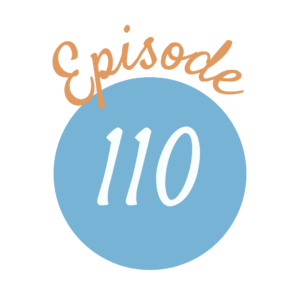
This week’s Charlotte Mason podcast episode is another Q&A session with Liz, Nicole, and Emily, notably: is it okay to start a Mason education midyear? are the special studies books too simple and demeaning to our child’s intelligence? and what about a passage in Mason’s writings that contradicts ideas she shares in other places?
Listen Now:
“Not what we have learned, but what we are waiting to know is the delectable part of knowledge.” (3/224)
“The real use of naturalists’ books at this stage is to give the child delightful glimpses into the world of wonders he lives in, to reveal the sorts of things to be seen by curious eyes, and fill him with desire to make discoveries for himself. There are many to be had, all pleasant reading, many of them written by scientific men, and yet requiring little or no scientific knowledge for the enjoyment.” (1/64)
“Away with books, and ‘reading to’–for the first five or six years of life. The endless succession of story-books, scenes, shifting like a panorama before the child’s vision, is a mental and moral dissipation; he gets nothing to grow upon, or is allowed no leisure to digest what he gets.” (5/216)
“The endless succession of storybooks, scenes, shifting life a panorama before the child’s vision, is a mental and moral dissipation; he gets nothing to grow upon, or is allowed no leisure to digest what he gets.” (5/217)
“They must grow up upon the best. There must never be a period in their lives when they are allowed to read or listen to twaddle or reading-made-easy. There is never a time when they are unequal to worthy thoughts, well put; inspiring tales, well told…and we shall train a race of readers who will demand literature–that is, the fit and beautiful expression of inspiring ideas and pictures of life.” (2/263)
“In the first place, it is not her business to entertain the little people: there should be no storybooks, no telling of tales, as little talk as possible…” (1/45)
“The mischief begins in the nursery. No sooner can a child read at all than hosts of friendly people show their interest in him by a present of a ‘pretty book.’ A ‘pretty book’ is not necessarily a picture-book, but one in which the page is nicely broken up in talk or short paragraphs. Pretty books for the schoolroom age follow those for the nursery, and, nursery and schoolroom outgrown, we are ready for ‘Mudies’ lightest novels; the succession of ‘pretty books never fails us; we have no time for works of any intellectual fibre, and we have no more assimilating power than has the schoolgirl who feeds upon cheesecakes.” (5/214)
“Guard the nursery; let nothing in that has not the true literary flavour; let the children grow up on a few books read over and over, and let them have none, the reading of which does not cost an appreciable mental effort.” (5/215)
“‘Books for the young’ used to be few and dull; now, they are many and delightful.” (5/215)
Formation of Character (Volume 5), Part III, Chapter I
A Field Guide to Bird Songs (CD)
First Look at Books by Millicent Selsam
(*Affiliate Links)
Science, A Vast and Joyous Realm Teacher Training Video
A Vision for Children Teacher Training Video





Hello Ladies,
I enjoyed this episode as I do them all thank you! I would love to know what the Mushroom book was that Nicole mentioned, that was both simple and wonderfully informative – would you share the title? I too find these “simplistic” nature books so helpful in opening up new areas of study for us all. Thank you!
Very Sincerely,
Cailan Matthews
It’s called Let’s Learn About Mushrooms by Phyllis Perry. I agree about these “simplistic” books. Miss. Mason said these types of books were an adjunct to nature study. In that respect, it seems like their simplicity is just perfect.
~Nicole
Thank you so much, Nicole! Love your heart to help and encourage others.
What was the name of that Mushroom book?
See above 🙂